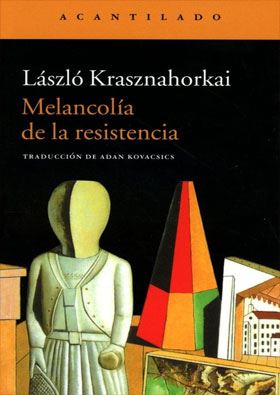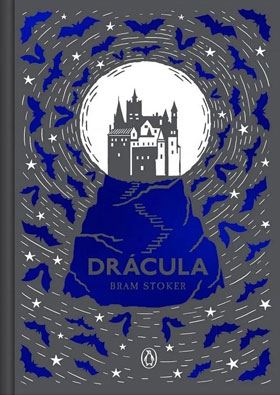

FLORES BAJO LA LLUVIA (BOL) (OF1)
En esta magnífica colección de relatos, Rosamunde Pilcher explora con extraordinaria sensibilidad y talento las diversas facetas del alma humana.
Una joven a punto de contraer matrimonio recibe unos consejos sorprendentes de su abuela; un niño pequeño se ve obligado a asumir las responsabilidades del cabeza de familia; un marido joven intenta revivir las experiencias de soltero... Historias de pequeños dramas domésticos, relatos de amor e infortunio, de felicidad y desesperación...
299
FORTALEZA DIGITAL (BOL)
Cuando el sofisticado superordenador de la NSA -la agencia de Inteligencia más poderosa del mundo- intercepta un código que es incapaz de descifrar, ésta debe recurrir a su mejor criptógrafa, Susan Fletcher.Fletcher descubrirá algo que hará tambalear las más altas esferas de poder: un intrincado código que, si llegara a hacerse público, podría provocar el mayor desastre de la historia de los servicios de inteligencia de Estados Unidos. Atrapada en una espiral de secretos y mentiras, Fletcher quiere salvar la agencia en la que cree pero, traicionada por todos, pronto se da cuenta de que debe luchar no sólo por su país, sino también por su vida. Una batalla por la supervivencia, una carrera crucial para destruir una creación de increíble sabiduría que amenaza con poner en jaque el equilibrio del poder mundial...para siempre.Un trepidante y vertiginoso thriller que transporta a los lectores desde las calles de Sevilla o los rascacielos de Tokio hasta el corazón de uno de los organismos más secretos del mundo. La primera novela de Dan Brown.
850
FOUCHE. RETRATO DE UN HOMBRE POLITICO
La ambición y la intriga son las únicas pasiones de este hombre político, carente de escrúpulos y moral, que navega a través de las convulsiones sociales y políticas de la Francia revolucionaria y del imperio sin mudar el gesto. Como muy bien dice Zweig: «Los gobiernos, las formas de Estado, las opiniones, los hombres cambian, todo se precipita y desaparece en ese furioso torbellino del cambio de siglo, sólo uno se queda siempre en el mismo sitio, al servicio de todos y de todas las ideas: Joseph Fouché».
1,450
FRANKENSTEIN O EL MODERNO (PENGUIN)(BOL)
Los mejores libros jamás escritos. «El mito de Frankenstein proyecta su espectacular sombra so-bre las inmensas bibliotecas de la literatura y el cine occidental.» Alberto ManguelEn 1816, Mary Shelley dio vida al que sería su personaje más famoso, el doctor Victor Frankenstein. La historia es bien conocida: un científico consigue crear una criatura a la que luego rechaza. Metáfora sobre la vida, la libertad y el amor, Frankenstein o el moderno Prometeo es una maravillosa fábula con todos los ingredientes de los grandes mitos. La presente edición se abre con una lúcida introducción de Alberto Manguel, titulada «La novia de Frankenstein», en la que el afamado escritor y crítico analiza el mito del monstruo y su influencia en la cultura contemporánea. «Cuando esos músculos y esas articulaciones adquirieron la facultad de moverse, aquel ser se convirtió en algo tan indescriptible que ni siquiera Dante habría sido capaz de concebir nada igual.»
850
GRACIAS POR EL FUEGO (BOL)
Indispensable en la bibliografía de Benedetti, Gracias por el fuego es una novela que supera los tópicos, para inundar de vida y aprendizaje la experiencia del buen lector. Ramón Budiño quiere matar a su padre, quien representa lo peor de un país, Uruguay, y de una clase social que ha huido de su propia responsabilidad por el miedo a ser censurada. El peso del caudillismo en la vida cotidiana después de más de un siglo de independencia es para Ramón señal de que nada se ha renovado; de que todos siguen inmersos en una mentalidad política y social que impide tanto el desarrollo colectivo como el personal. La frustración por no poder matar a su padre a pesar de haber planeado concienzudamente su asesinato representa una fiel metáfora de la tela de araña en la que Ramón lleva atrapado durante años.
900
GRAND HOTEL
Los personajes más fascinantes hacen girar la puerta del Grand Hotel. En sus habitaciones descansa la famosa Grusinskaia, una atormentada bailarina de ballet que vive sus últimos días de éxito; el arruinado barón Gaireng, que pretende a partes iguales a la caprichosa dama y a su valioso collar de perlas; Kringelein, un humilde contable para quien dilapidar de su dinero se convertirá, irónicamente, en una cuestión de vida o muerte y, por último, el pobre doctor Otternschlad, que calma la ausencia de correspondencia a su nombre con inyecciones de morfina. Todos ellos transitan el vestíbulo del Grand Hotel mientras un agitado Berlín se prepara para la segunda gran guerra.Vicki Baum fue en una autora de fama internacional y todas sus obras cosecharon un gran éxito de ventas. Sin embargo, este reconocimiento no se trasladó a la crítica, que quiso ver en su popularidad un defecto de su estilo y no una virtud. A todos ellos, Vicki Baum dedicó un subtítulo que nunca superó las diferentes traducciones y que BackList recupera en esta edición de Grand Hotel, uno de los primeros best sellers del sector editorial español.
1,300














